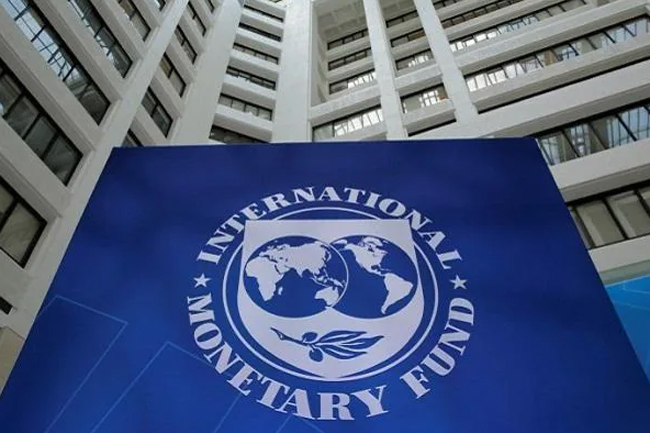IMF says timeline remains uncertain as Sri Lanka eyes December bailout
September 29, 2022 01:32 pm
Sri Lanka’s government appears increasingly upbeat about its chances of receiving International Monetary Fund (IMF) board approval for a USD 2.9 billion bailout by December, but the multilateral lender has cautioned that the time frame remains uncertain, and much depends on discussions with the heavily indebted country’s creditors.
Peter Breuer, senior mission chief for Sri Lanka, and Masahiro Nozaki, mission chief for Sri Lanka, in written comments to Nikkei Asia, said, “It is difficult to predict the timeline, as the process of debt relief discussions takes time. All parties who are involved in the process should move expeditiously, so that Sri Lanka can emerge from the crisis as quickly as possible.”
On Sept. 1, Sri Lanka reached a staff-level agreement with the IMF to obtain the $2.9 billion, a crucial lifeline for a country wrestling with the worst economic crisis in its history. The country’s year-on-year inflation topped 70% in August, and the public continues to face severe shortages of essentials.
Earlier this year, Sri Lanka defaulted on a foreign bond for the first time, after its foreign reserves dwindled to next to nothing. “We announced that we are not in a position to pay,” central bank Gov. Nandalal Weerasinghe said in May, confirming the “pre-emptive default.”
“Our position is very clear. Until [the lenders] come and restructure, we can’t pay,” Weerasinghe said.
Last Friday, Sri Lanka’s Finance Ministry held an online presentation for external creditors to explain the situation and discuss the next steps toward restructuring. A handout cited “some past policy mistakes” along with the COVID-19 pandemic and the resulting crisis as key factors that crippled the economy, depleted reserves and forced the country to stop debt repayments.
The day before, President Ranil Wickremesinghe chaired a meeting with ambassadors from 23 Paris Club and non-Paris Club countries, including Japan, France and India, to discuss related matters.
Wickremesinghe appealed to all creditor countries to offer the “financing assurances” on debt sustainability the IMF has said are essential for the board to give the final green light.
The Indian High Commission in Sri Lanka, for its part, expressed support even before the creditor briefings. On Sept. 20 it said that it had started discussions on restructuring Sri Lanka’s official debt to India. A spokesman told Nikkei Asia that the “cordial atmosphere” of the talks reflected New Delhi’s support for an “early conclusion and approval of a suitable IMF program.”
Noting the need for other creditors to work on ensuring Sri Lanka’s debt is manageable, he added that India would remain “closely engaged” with relevant stakeholders.
During last Friday’s presentation, Weerasinghe and Mahinda Siriwardana, secretary to the Treasury and Ministry of Finance, noted that as of the end of June, Sri Lanka’s public debt stood at 122% of gross domestic product. A figure equivalent to 70% of GDP was denominated in foreign currency.
According to the presentation by the Ministry of Finance and the central bank, China, Japan and India were the country’s top three bilateral creditors, with China accounting for 52% in total, followed by Japan at 19.5% and India at 12%.
The Sri Lankan officials also pushed for the formation of an ad-hoc coordination group to expedite the process of obtaining financing assurances from multiple creditors. They explained that such a group would allow official bilateral creditors to give such assurances to the IMF collectively, after discussing the matter among themselves.
The Japanese Embassy in Colombo agreed that it is essential for all creditors to come to the table for debt restructuring discussions to ensure that the process is transparent and fair. “If all the creditor countries will participate in a coordination platform proposed by President Wickremesinghe, the government of Japan is ready to contribute to the discussion in a constructive way,” the embassy told Nikkei Asia.
But all eyes are on top creditor China, known for its preference for refinancing loans or deferring repayments rather than restructuring and settling for loss-making “haircuts.”
On the sidelines of the United Nations General Assembly last week, Sri Lankan Foreign Minister Ali Sabry met his Chinese counterpart, Wang Yi, who pledged China’s support for a Sri Lankan economic recovery.
A Chinese Foreign Ministry readout of the meeting said that Wang promised China “is ready to work with Sri Lanka to carry forward the traditional friendship, consolidate strategic mutual trust and deepen and expand pragmatic cooperation.” He also said that China would “continue to offer assistance within our capacity to help Sri Lanka overcome temporary difficulties.”
Still, a highly placed Sri Lankan diplomatic source said that although debt discussions have started with some countries, it is “impossible” to say how long they will take and when a final decision will be made.
Source: Nikkei Asia












